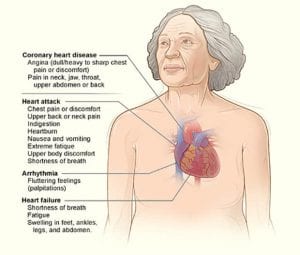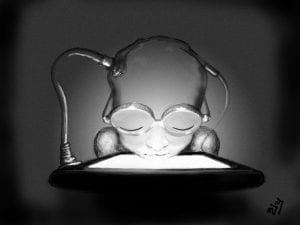
The Sleep Gender Gap: Do Women Need More Sleep?
Aug 24, 2023
The concept of a sleep gender gap is rooted in the physiological differences between men and women. Women’s sleep cycles are influenced by hormonal fluctuations throughout their menstrual cycle, pregnancy, and menopause, affecting sleep quality and duration. Furthermore, women are more prone to certain sleep disorders, such as insomnia, which can further exacerbate sleep deprivation.
Research suggests that women may need more sleep due to the complex nature of their brain activity. Women often multitask and utilize more regions of their brain than men, which could require more time for recovery and repair during sleep.
However, societal expectations and roles can contribute to this sleep gender gap. Women, particularly those balancing work and family responsibilities, often have less time to dedicate to rest. This can lead to chronic sleep deprivation, impacting their health and well-being.
Understanding the sleep gender gap is not just about acknowledging biological differences. It’s also about recognizing and addressing the societal factors that contribute to sleep deprivation among women. By doing so, we can create a more inclusive approach to sleep health, ensuring that everyone, regardless of gender, gets the rest they need for optimal well-being.
Understanding Sleep Needs:
Understanding one’s unique sleep needs is crucial for maintaining optimal health and well-being. Age is a significant factor, with younger individuals generally requiring more sleep. For instance, newborns need up to 17 hours of sleep daily, while teenagers require 9-10 hours. As people age, their sleep duration tends to decrease, but the need for quality sleep remains.
Genetics also play a role in determining sleep needs. Some people are naturally short sleepers, requiring less than the average sleep duration to function optimally, while others may be long sleepers. These genetic differences can influence not only the amount of sleep one needs but also their susceptibility to sleep disorders and their ability to cope with sleep deprivation.
Lifestyle factors, including diet, physical activity, and stress levels, can also impact sleep needs. For example, being physically active or under high-stress levels may require more sleep for recovery and rejuvenation. Similarly, dietary habits can influence sleep quality and duration. Consuming caffeine or alcohol close to bedtime, for instance, can disrupt sleep patterns.
In conclusion, understanding sleep needs is a multifaceted process that requires considering various factors. By recognizing these factors and adjusting sleep habits accordingly, individuals can ensure they get the rest they need for optimal health and performance.
The Sleep Gender Gap:
The sleep gender gap is a fascinating area of study that underscores the importance of considering gender differences in health research. Women’s susceptibility to certain sleep disorders, such as insomnia and restless leg syndrome, can significantly impact their sleep quality and duration. These disorders can lead to chronic sleep deprivation, which can have serious health consequences, including increased risk of cardiovascular disease, diabetes, and mental health disorders.
Hormonal fluctuations in women, particularly during menstrual cycles, pregnancy, and menopause, can further complicate sleep patterns. These hormonal changes can cause sleep disturbances, such as night sweats and hot flashes, disrupting sleep and leading to daytime fatigue.
Moreover, women’s cognitive load can also contribute to their increased sleep needs. Women tend to multitask and use more brain regions during the day, which can lead to a greater need for sleep to allow for recovery and repair.
However, societal factors also play a role in the sleep gender gap. Women, especially those juggling multiple roles at home and work, often face challenges prioritizing sleep, leading to chronic sleep deprivation.
Cognitive Impact:
Indeed, the cognitive impact of sleep deprivation is a serious concern, particularly for women who often balance multiple roles and responsibilities. Sleep is not merely a rest period but a critical time for the brain to process and consolidate information from the day. When sleep is compromised, these cognitive processes can be significantly affected.
Memory consolidation, which solidifies and stores information for later recall, primarily occurs during sleep. Therefore, sleep deprivation can lead to memory impairments, making remembering and learning new information difficult. This can be particularly challenging for women balancing work, family, and personal responsibilities, as it can affect their performance and productivity.
Moreover, sleep deprivation can impair cognitive functions such as decision-making and problem-solving. It can lead to reduced attention span, slower reaction times, and decreased task accuracy. These effects can have severe implications in various aspects of life, from performing tasks at work to driving a car.
Emotional regulation is another cognitive function that is heavily influenced by sleep. Lack of sleep can lead to mood swings, increased irritability, and higher susceptibility to stress. For women who are already more prone to mood disorders such as depression and anxiety, sleep deprivation can exacerbate these conditions.
In conclusion, the cognitive impact of sleep deprivation is a significant concern, particularly for women. It underscores the importance of prioritizing sleep and addressing the factors contributing to sleep deprivation. Doing so can enhance cognitive performance, improve emotional well-being, and ultimately, close the sleep gender gap.
Physical Health Implications:
Inadequate sleep can have profound implications for physical health, particularly among women. Sleep plays a key role in various bodily processes, and insufficient sleep can disrupt these functions and increase disease risk.
One key area impacted is hormonal regulation. Sleep affects the release of critical hormones such as cortisol, growth hormone, and prolactin. Disruptions to these hormonal cycles due to lack of sleep can influence female reproductive health and conditions like polycystic ovary syndrome.
Sleep also affects metabolic processes, including appetite regulation and insulin sensitivity. Insufficient sleep is linked to an increased risk of obesity, high blood pressure, and type 2 diabetes – conditions that disproportionately impact women.
Immune function is also closely tied to sleep. Sleep deprivation can impair immune cell function and reduce antibody production. This can make women more susceptible to infections and chronic illnesses.
Furthermore, the connection between lack of sleep and increased cardiovascular disease risk is well established. Women tend to have unique risk factors for heart disease, so adequate sleep is critical.
Societal Factors:
The expectations placed on women at work and home can significantly impact their ability to get adequate rest.
Women disproportionately bear the burden of household responsibilities like childcare, cleaning, and elderly care on top of their professional obligations. This double duty leaves precious little time for sleep and self-care. Without proper support systems, women struggle to prioritize rest over completing their endless tasks.
Moreover, pervasive beauty standards and pressure to appear youthful and attractive can also induce stress and anxiety. This affects women’s mental health, making it difficult to unwind and fall asleep. Fears of judgement for looking tired or having under-eye bags lead some women to sacrifice even more sleep.
Inequities in household dynamics, income, safety, and access to healthcare also influence women’s sleep quality. For example, lower earnings limit some women’s ability to afford interventions for sleep disorders.
Transforming attitudes about gender roles and norms is critical to addressing the societal drivers of women’s sleep deprivation. More equitable distribution of labour, flexible work policies, and access to mental health support can help overcome these systemic barriers to rest.
Conclusion:
The evidence for a sleep gender gap is compelling, with research indicating that women may need more sleep than men due to many influences.
Physically, women’s sleep is impacted by hormonal fluctuations related to menstruation, pregnancy, and menopause. These hormonal shifts can significantly disrupt sleep cycles and architecture. Women also appear to have increased susceptibility to certain sleep disorders like insomnia and restless leg syndrome, which can lead to chronic sleep loss.
Moreover, women’s cognitive activities and tendencies towards multitasking may contribute to greater sleep needs for adequate rest and restoration. The cognitive effects of sleep deprivation, including issues with memory, decision-making, and emotional regulation, can be particularly detrimental for women managing multiple responsibilities.
Insufficient sleep also has profound implications for women’s physical health. It is associated with an increased risk of obesity, cardiovascular disease, diabetes, and immune dysfunction – conditions that already disproportionately impact women.
Finally, pervasive societal pressures and expectations of women related to work, family care, beauty standards, and mental load play a key role in driving the sleep gender gap. Creating more equitable systems to improve women’s ability to prioritize sleep is imperative.
In summary, the confluence of biological, psychological, cognitive, and social factors contributes to increased sleep needs for women. Addressing these root causes through research, education, and policy reform is crucial for closing the gender sleep gap and promoting women’s health and well-being.
Fascinating Read Worthy of Your Interest

Unveiling Mass Hysteria Cases: Insights into Noteworthy Examples

What is a Hedge Fund: Beyond the Basics, Embracing Volatility

Home Run with Homeschooling Ideas
Americans with No Emergency Funds: Progress & Challenges

Hookah Lounge: A Captivating Experience for Relaxation and Socialization

Anxiety Sensitivity Index Does Not Support Stock Market Crash

Unveiling the Silent Threat: Women and Heart Disease

Homeschooling Benefits: A Comprehensive Guide

Google News Trends Unveiled: Gossip Promoted as News

Benefits Of Homeschooling: US Education System Is Crumbling

Neocon Perceptions and the Illusion of Nuclear Warfare

Stocks To Buy Today Reddit – Focus on the Trend, Ignore the Noise

12 Best Tropical Paradises to Visit for Your Dream Getaway

Neocon 2023: Debunking the Nuclear War Myth



